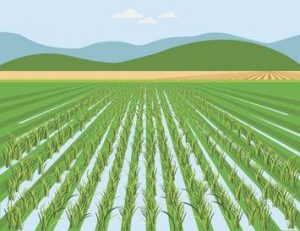What Is Natural Farming?:

Prime Minister Addressed a Natural Farming Conclave, where he urged farmers to take up Natural Farming.
- Natural Farming is defined as a “chemical- free farming and livestock based”.
- Soundly grounded in agro-ecology, it is a diversified farming system that integrates crops, trees and livestock, allowing the optimum use of functional biodiversity.
- It holds the promise of enhancing farmers’ income while delivering many other benefits, such as restoration of soil fertility and environmental health, and mitigating and/or reducing greenhouse gas emissions.
- This farming approach was introduced by Masanobu Fukuoka, a Japanese farmer and philosopher, in his 1975 book The One-Straw Revolution.
- Internationally, Natural Farming is considered a form of regenerative agriculture—a prominent strategy to save the planet.
- In India, Natural farming is promoted as Bhartiya Prakritik Krishi Paddhati Programme (BPKP) under Paramparagat Krishi Vikas Yojana (PKVY).
- BPKP is aimed at promoting traditional indigenous practices which reduce externally purchased inputs.




